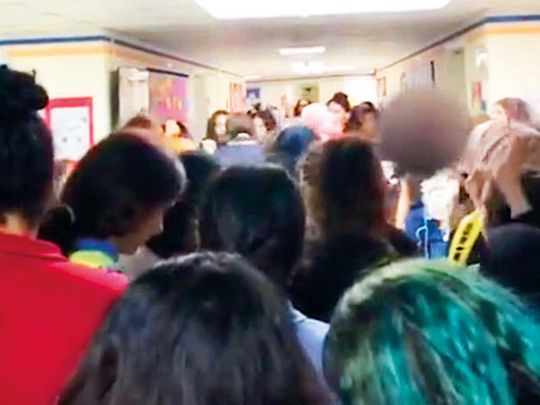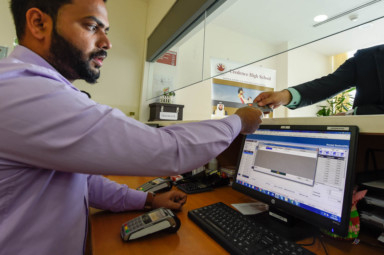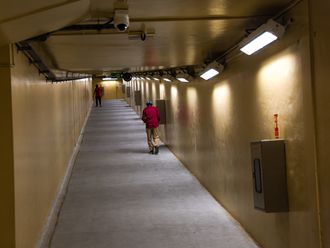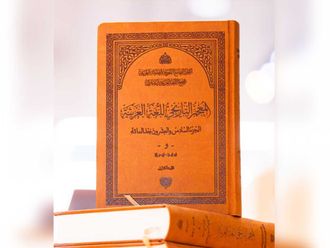
Dubai: The alleged confinement of students in a Dubai school gym over non-payment of fees on Tuesday has raised questions over what recourse schools and parents have when it comes to unpaid fees.
On Tuesday, Dubai Police swung into action after receiving a call that claimed that some students at a Dubai school were allegedly confined to a gym until their parents arrived as their fees remained unpaid. “A police patrol went to the school to resolve the matter,” a police official said on Tuesday, but added that the school management denied confining the students.
While the school declined to provide a comment to Gulf News, the Knowledge and Human Development Authority (KHDA) said it is investigating the matter.
The regulations
In general, KHDA is clear about what schools can and cannot do if the fees remain unpaid.
Amal Belhasa, CEO of Knowledge and Human Development Policies at KHDA, told Gulf News on Wednesday, “Schools have a right to receive fees in return for the education provided. However, as per regulations, schools are not allowed to stop students from completing their academic year or appearing for examinations due to non-payment of fees. Schools can withhold final examination results and transfer letter until the fees are paid in full as agreed between both parties. While parents are usually committed towards their financial obligations, those who need the flexibility must engage with the school and work towards agreeing on a suitable payment plan.”
‘Challenge’ before schools

Schools on their part said recovery of dues poses a big challenge.
E.P. Johnson, President of the Sharjah Indian Association that manages the two branches of Sharjah Indian School, said, “Unpaid fees is a huge challenge for us. We have more than Dh6 million in pending fees since 2014 when our average monthly fee is just Dh400, the lowest perhaps in the country. In the case of one student, the outstanding is over Dh25,000.”
Hardpressed to recover the money, he said the school began to allow defaulting parents to pay their dues in instalments with a request letter to say they would clear the remaining amount through post-dated cheques. “This has not helped. Although we have genuine cases, there are habitual defaulters too. What they don’t understand is that it is very difficult to pay salaries and cater to other school expenses if the fees are not paid,” he said.
Johnson said despite it all, however, the school has not expelled any student on account of non-payment of fees. “Humanitarian considerations invariably take over. The law too does not allow a school to expel a student on this count.”
Payment options
Gavin Walford-Wright, chief people, marketing and admissions officer of the Taaleem group of schools said, “The Taaleem family of schools works in partnership with parents to ensure that school fees are paid in full and on time through a variety of payment options.”
He said when parents are concerned about fee payment, “it’s usually out of their control: loss of employment, business owners waiting for payment from customers, family emergency, loss of education allowance and/or leaving the country. We work within the KHDA framework and provide options and payment plans; our parents want to pay for the education of their children and we want to help and support them.”
Many schools also state the implications of non-payment of fees on their websites.
Parents at a loss
Some parents, deemed as ‘defaulters’, said they expect schools to be more understanding of their situation. More often than not, good samaritans come forward to clear their dues but that is not a sustainable solution.
A debt-ridden Pakistani mum of five children in Sharjah said she was forced to discontinue their education for two months because she could not afford to pay their fees. “Thankfully, some help came my way and I was able to pay up for the last term and they could resume school. This term’s fees are due now and I keep getting reminders. My children’s results are withheld. I just wish I could get more time.”
The mum of three Bangladeshi children in Ajman – an 18 year old and a pair of twins, 13, said she also lives in the constant fear that their names will be stuck off the rolls because of unpaid fees after a family business collapsed. She said she banks on the principal’s kindness and with support from well-wishers, managed to pay their fees before the last exams.
The legal viewpoint
From a legal point of view, Bindu Chettur, lawyer with Mohammed Salman Advocates & Legal Consultants, said, “Recovery of school fees is like recovery of any money that is due to a party, so a school is well within its right to take a defaulter to court. But this is rarely done as the amounts involved in individual cases are small. But schools can be held criminally liable where corporal punishment or other restraining measures are taken against students. Thirdly, every child has a right to education under the Child Rights Law and a parent can be held liable if any form of neglect on their part is established.”
She said many parents cite financial difficulties as the reason for not paying the fees.
“But they would do well to choose a school that is within their means.”
What schools can and cannot do if the fees are not paid
- Can exercise their right to receive fees in return for education provided
- Can withhold final examination results
- Can withhold transfer letter until the fees are paid in full as agreed between both parties
- Can agree on a suitable payment plan with parents who are committed towards their financial obligations
- Cannot stop students from completing their academic year
- Cannot stop students from appearing for examinations









